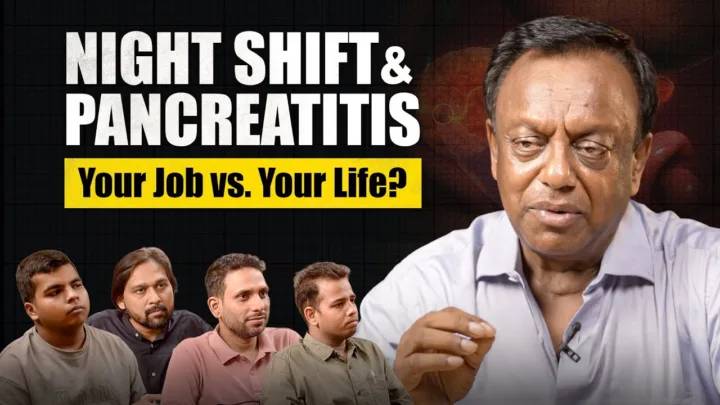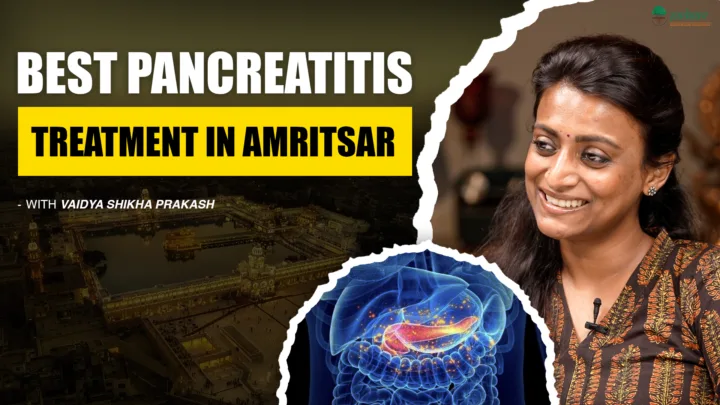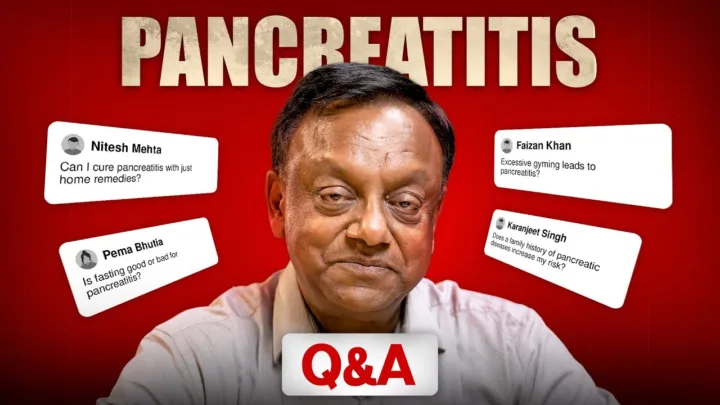The journey through chronic pancreatitis often feels like a constant battle against physical pain, financial strain, and the fear of the unknown. As Vaidya Shikha Prakash and her team emphasize, every patient coming to Padaav Ayurveda seeks a return to a “normal life.” However, achieving this requires more than just medicine; it demands a fundamental shift in awareness, discipline, and daily lifestyle.
The Hidden Dangers of Modern Living
One of the most profound insights from the clinical experience at Padaav Ayurveda is that the root cause of pancreatic distress often lies not just in specific habits, but in the relentless pace of modern life.
The “Always-On” Syndrome: Experts note that many patients operate under constant stress. “We all work 24 hours,” says Vaidya Shikha Prakash. “Everybody is always activated. Nobody is at rest. Their nervous system is never at rest.” This constant state of activation, driven by pressure, anxiety, and the demands of modern competition, puts immense pressure on the body’s digestive and nervous systems.
The Broken Routine: The conversation highlights that a large fraction of the population, particularly women, follow a deeply flawed routine:
- Late Nights: Going to bed late after completing all household and family duties.
- Early Mornings: Waking up tired to manage school runs and work.
- The “Bad Tea” Habit: Starting the day with tea on an empty stomach (often followed by stale food or two biscuits), which is detrimental to nutrient absorption and often contributes to anemia, a common finding in many patients.
- Meal Skipping: Failing to eat structured, nutritious meals throughout the day, often filling the gaps with multiple cups of tea, biscuits, or the “one apple” they believe makes them healthy.
This cycle, coupled with the tendency to eat the heaviest, most complicated meal late at night (often the only family meal), leaves the body undernourished and strained.
The Foundations of Healing: Diet and Lifestyle
At Padaav Ayurveda, the path to healing is built on three pillars: Medicine, Food, and Lifestyle. The core focus is on aligning the patient’s habits to prioritize their health.
1. Redefining Healthy Food: The Flour and the Fuel
The team advocates for simplicity over the current trend of “over-healthy” multi-grain products. Instead of combining ten grains, which can cause digestive issues, the hospital uses a specific, easy-to-digest blend:
- The Padaav Flour Mix: Three parts Wheat (गेहूँ), two parts Barley (जौ), and one part Chickpea (चना). For some, wheat is eliminated entirely, with the ratio being 2:1 for barley and chickpea.
- Benefits: Barley is an excellent source of fiber, and chickpea provides necessary protein. This simplified mix is easy for a compromised system to process.
- Regional Focus: Incorporating local millets like Ragi (रागी), known as Mandwa (मंडवा) in Uttarakhand, is encouraged as a simple, digestible seasonal food source.
The goal is to provide “Bal Khana” (food that gives strength), which is the body’s essential fuel.
2. The Case Against Tea
The famous ban on tea at the hospital is a critical part of the therapeutic process:
- Rule and Absorption: Firstly, it’s a rule of the hospital. Secondly, and more importantly, tea is an inhibitory factor that hinders the absorption of the medicinal compounds taken by the patient.
- Anemia and Health: Given that many patients are marginally anemic, starting the day with tea further inhibits iron absorption. It is simply not a healthy way to begin the day. Herbal infusions like lemon grass or chamomile are provided instead.
Protein: The Building Block for Recovery
For patients suffering from pancreatitis, severe malnourishment and fatigue are common. Addressing this requires a calculated approach to protein intake, which is the body’s “building block.”
- Requirement: As a general guideline, a patient should aim for 0.8 to 1 gram of protein per kilogram of body weight (e.g., a 60 kg person needs 48-60 grams).
- Simple Sources: This does not require expensive supplements. The focus is on easily digestible, whole foods:
- Paneer (पनीर) / Chena (छेना): 100-150 grams per day.
- Dal (दाल): A thick portion of moong dal (मूंग दाल) or other lentil soup.
- Dahi (दही) / Chaach (छाछ): Curd or buttermilk.
- Eggs (अंडे): Two eggs provide about 12 grams of protein.
Instead of heavy meals, patients are encouraged to eat smaller portions of these protein-rich foods across every meal to meet their daily requirement without overburdening the pancreas.
The Long-Term Discipline: The 21-Day Alignment
While the 21-day stay at the hospital helps to stabilize the patient and align them with a routine, the real challenge begins at home.
- The ‘No Magic’ Rule: Recovery is not an instant miracle. “No medicine is ever magic,” stresses Vaidya Shikha Prakash. “It is consistent effort that you would put.” It takes discipline to stick to the new routine, especially after leaving the structured environment of the hospital.
- Daily Records and Compliance: Patients are instructed to maintain a Daily Dietary Record System to track their intake and routine. This rigorous follow-up system, which includes checking emails and constant engagement, is crucial because even slight deviations in meal timing (e.g., a 1 PM lunch shifting to 2:30 PM) can disrupt a compromised digestive system.
- Mindful Living: Success stories show that those who follow the prescribed guidelines “meticulously” and with compliance are the ones who experience the most transformative journeys. The healing process is a balanced approach involving the food, the lifestyle, and the medicine all three must be addressed simultaneously.
A Leap of Faith Towards a Normal Life
For many, coming to Padaav Ayurveda is a “leap of faith.” The ultimate goal is to lead a “normal life,” but this definition must be realistic for a person living with pancreatitis.
- Redefining Normal: Normal may mean no more attacks, no more financial burden from repeated hospitalizations, or simply having the energy to pursue family and career goals.
- Prioritizing Health: The most important lesson is that until one addresses the health issue, they cannot enjoy anything else not money, career, or relationships. Healing requires acceptance, small daily steps, and a constant effort to be grateful for the health one has.
- Hope and Transparency: While pancreatitis is an unpredictable disease, the transparent approach and consistent follow-up provide a solid framework for managing the condition better, offering hope that the progression can be halted, and a life of quality can be maintained.






